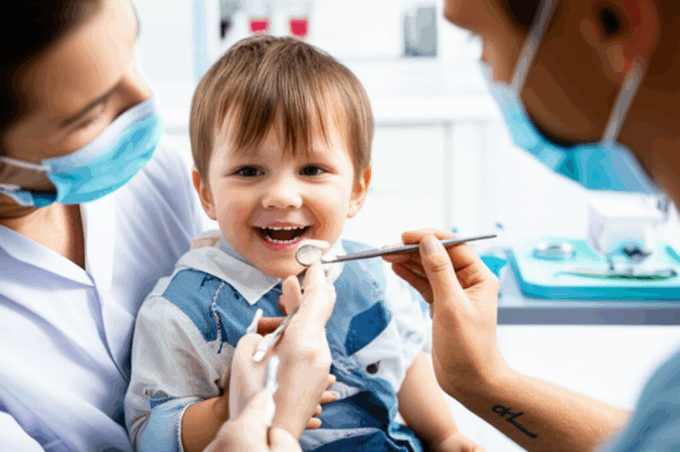Dental Visit: Best Age for First Checkup is a question many parents ponder as their little ones grow. Understanding the optimal time for your child’s initial dental appointment is crucial for laying the foundation of a lifetime of healthy smiles. It’s not just about spotting cavities; it’s about establishing a relationship with a dental professional, familiarizing your child with the environment, and receiving expert guidance on oral hygiene practices tailored to their developing needs.
Most pediatricians and dental associations, including the American Academy of Pediatric Dentistry (AAPD) and the American Dental Association (ADA), recommend that a child’s first dental visit should occur by the age of one year, or within six months of their first tooth erupting. This early introduction is surprisingly beneficial. Even before teeth emerge, an infant’s gums can be gently wiped with a clean, damp cloth to remove milk residue and bacteria. Once the first tooth appears, it’s time for a specialized dental check-up.
Why Such an Early Dental Visit?
The rationale behind this early dental visit is multifaceted. Firstly, it allows the pediatric dentist to assess your child’s oral development and identify any potential issues that might not be apparent to the untrained eye. This includes examining the number, position, and health of emerging teeth. They can also check for any signs of congenital anomalies or developmental problems.
Secondly, it’s an opportunity for parents to receive invaluable education. The dental team can provide personalized advice on how to clean your baby’s teeth, recommend the right type of toothbrush, and discuss the best practices for fluoride exposure. They can also address concerns about thumb-sucking, pacifier use, and the impact of diet on oral health, including early childhood caries (ECC), often referred to as baby bottle tooth decay.
Furthermore, this initial visit helps to demystify the dental office for your child. A positive early experience can prevent dental anxiety from developing. By making the visit a fun and non-threatening experience, with gentle examinations and age-appropriate explanations, children are more likely to view dental care as a normal and important part of their routine.
Preparing for the First Dental Visit
As a parent, you play a significant role in ensuring your child’s first dental visit is as smooth as possible. Here are a few tips:
Choose a Pediatric Dentist: Pediatric dentists are specialists trained to care for infants, children, and adolescents. They have a unique understanding of children’s anatomical and psychological needs, and their offices are often designed to be child-friendly.
Talk About It Positively: Frame the visit as an exciting adventure. Avoid using negative language or talking about potential pain. You can say, “We’re going to visit a special doctor who will count your teeth and make them sparkly clean!”
Practice at Home: Before the appointment, practice looking at your child’s teeth at home. You can use a soft toothbrush to gently brush their gums and newly emerged teeth. This familiarity will make the dental examination less startling.
Arrive a Little Early: This allows your child time to acclimate to the new environment without feeling rushed.
Stay Calm and Positive: Your demeanor can significantly influence your child’s experience. If you are anxious, your child may pick up on that.
What Happens During the First Dental Visit?
The actual appointment is usually quite brief and focuses on establishing a baseline and building rapport. The dental professional will typically:
Perform a Gentle Examination: This involves looking at your child’s teeth, gums, tongue, and cheeks. They might use a small mirror and gentle instruments.
Provide Cleaning Advice: They will demonstrate the best way to brush your child’s teeth, recommending a smear of fluoride toothpaste (about the size of a grain of rice) for children under three.
Discuss Diet and Habits: They will talk about the role of nutrition in oral health, the importance of avoiding sugary drinks, and the effects of prolonged pacifier or thumb-sucking.
Answer Your Questions: This is your opportunity to ask any questions you have about your child’s oral hygiene, teething, or any concerns you might have.
Regular Dental Checkups Beyond the First Visit
Following the initial appointment, regular dental checkups are crucial. For most children, dental visits are recommended every six months. These ongoing appointments allow the dentist to:
Monitor the eruption of new teeth and identify any orthodontic issues early on.
Apply fluoride treatments or sealants to protect teeth from decay.
Detect and treat any cavities promptly.
* Reinforce good oral hygiene habits.



